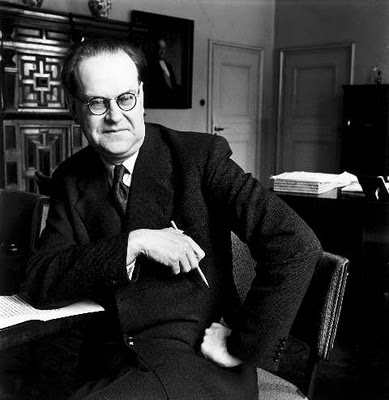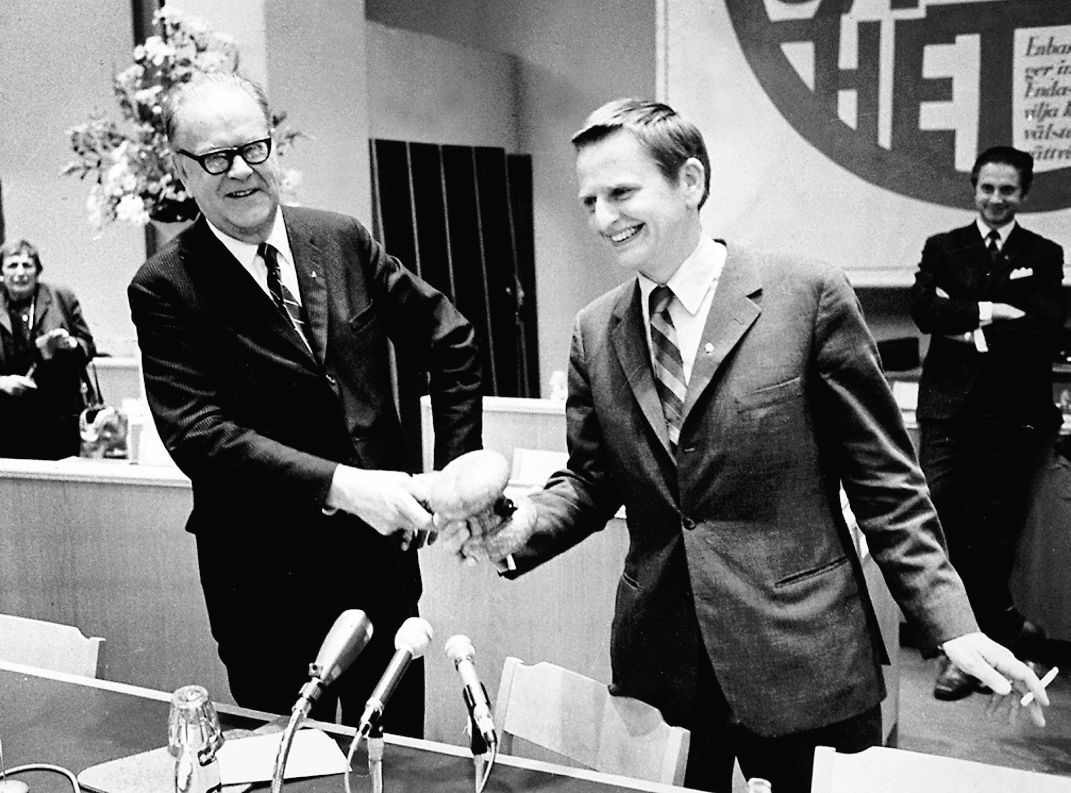<Back to Index>
- 16th Prime Minister of Sweden Karl Hjalmar Branting, 1860
- 25th Prime Minister of Sweden Tage Fritiof Erlander, 1901
PAGE SPONSOR
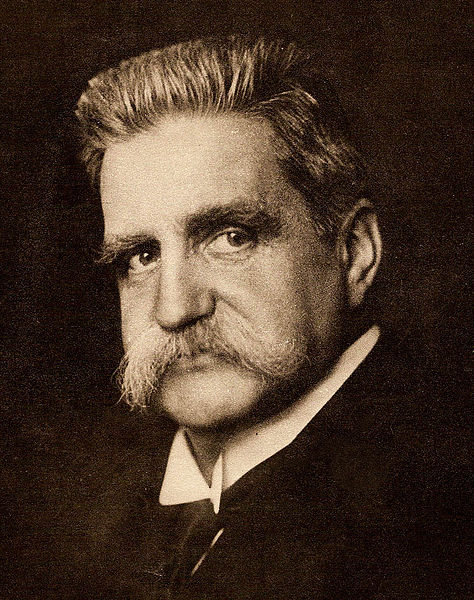
Karl Hjalmar Branting (23 November 1860 - 24 February 1925) was a Swedish politician. He was the leader of the Swedish Social Democratic Party (1907 - 1925), and Prime Minister during three separate periods (1920, 1921 - 1923, and 1924 - 1925). When Branting came to power in 1920, he was the first Social Democratic Prime Minister of Sweden. When he took office for a second term after the general election of 1921, he became the first socialist politician in Europe to do so following elections with universal suffrage.
A professor's son, Branting was educated in Stockholm and at the University of Uppsala. He developed a scientific background in mathematical astronomy and was an assistant at the Stockholm Observatory, but gave up his devotion to scientific work to become a journalist in 1884 and began editing the newspapers Tiden and Social - Demokraten. His decision to publish an article by the more radical socialist Axel Danielsson - a piece denounced by opponents as insulting to religious sensitivities - resulted in political convictions for blasphemy and imprisonment for both men. Branting was imprisoned for three months in 1888.
Together with August Palm one of the main organizers of the Swedish Social Democratic Party in 1889, and was its first Member of Parliament from 1896, and for six years the only one.
In the early years of the 20th century, Branting led the Social Democrats in opposing a war to keep Norway united with Sweden. When the crisis came in 1905, he coined the slogan "Hands off Norway, King!" The Social Democrats organized resistance to a call-up of reserves and a general strike against a war, and are credited with a substantial share in preventing one.
Hjalmar Branting accepted Eduard Bernstein's revision of Marxism and became a reformist socialist, advocating a peaceful transition from capitalism towards socialism. He believed that if workers were given the vote, this could be achieved by parliamentary ways. Branting supported the February Revolution in Russia in 1917. He was pro-Menshevik and defended the government of Alexander Kerensky, who he even personally visited in Petrograd.
When the October Revolution broke out the same year, Branting condemned the Bolshevik seizure of power. 1917 saw a split in the Swedish Social Democratic Party on this question, and the youth league and the revolutionary sections of the party broke away and formed the Social Democratic Left Party of Sweden, headed by Zeth Höglund. This group soon became the Swedish Communist Party. Zeth Höglund later returned to the Social Democratic Party, and wrote a two - volume biography about Hjalmar Branting.
As Prime Minister he brought Sweden into the League of Nations and was personally active as a delegate within it. When the question of whether Åland should be handed over to Sweden after the independence of Finland from Russia was brought up, he let the League of Nation decide upon the issue. He was awarded the Nobel Peace Prize in 1921 for his work in the League of Nations.
Branting is commemorated by the Branting Monument in
Stockholm. Additionally in Gothenburg, there is a tram and
bus interchange named after Branting, in Swedish it is
Hjalmar Brantingsplatsen. In Copenhagen, a street is named
after him.
There is a square in Copenhagen named Hjalmar Brantings
Plads. There is no street in Copenhagen named after the
politician. The square houses some of the most expensive
apartments in Copenhagen. The square is a "leftover" from
the city´s old defense lines and is situated right across
from the park Øster Anlæg. Øster Anlæg was also part of
the city´s defense system until 1850´s where the breakout
of Cholera meant that the city needed to expand, and the
old borders where abandoned.
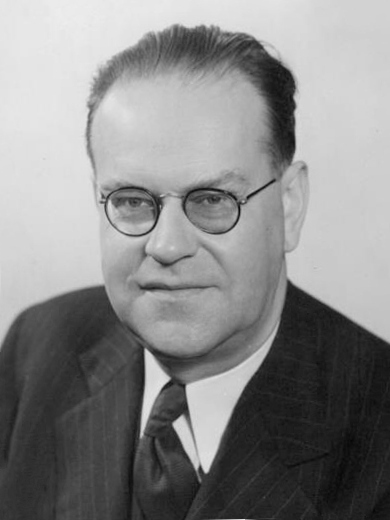
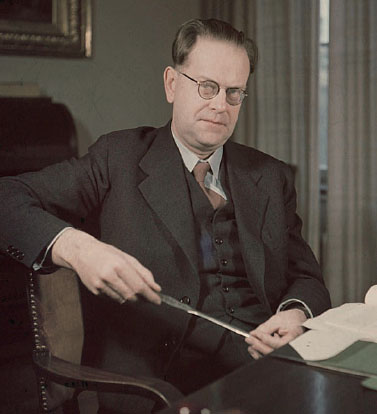

Tage Fritiof Erlander (13 June 1901 - 21 June 1985) was a Swedish politician who served as Prime Minister of Sweden from 1946 to 1969. He was the leader of the Swedish Social Democratic Party and his uninterrupted tenure of 23 years as head of government is a record for parliamentary democracies, with the popular expression "Sweden's longest Prime Minister" referring to both his physical stature and tenure (the Swedish word lång meaning both long and tall).
Ascending to the World War II coalition government in 1944, Erlander rose unexpectedly to leadership upon the death of Prime Minister Per Albin Hansson in October 1946, cementing the position of the Social Democratic Party as the virtual government of Sweden. Known for his moderation, pragmatism and self - irony, Erlander constantly sought approval from the liberal - conservative opposition for his policies, de facto dropping all pretenses of wide scale nationalizations whilst introducing reforms such as universal health insurance, pension additions and a growing public sector while stopping short of raising tax levels above the average OECD levels at the time. In 1951 - 1957, he espoused a coalition government with Peasants' League chairman Gunnar Hedlund in order to secure majority and stability, led by himself.
In foreign policy, he initially sought an alliance of Nordic countries, but without success, instead maintaining strict neutrality while building up among the most impressive armed forces in the world (surpassed only by the United States, the Soviet Union and Israel in terms of per capita spending), making the Swedish Air Force the third largest in the world, while ultimately rejecting nuclear capability, signing the nuclear non - proliferation treaty in 1968. Erlander's mandate coincided with the post World War II economic expansion, in Sweden known as the record years, in which Sweden saw its economy grow to one of the ten strongest in the world, and subsequently joined of the G10.
Resigning after the Swedish general election, 1968, his
seventh and most successful election in which the Social
Democrats surpassed all four opposition parties in terms
of seats, Erlander was succeeded, in the midst of
constitutional reforms, by his long time protégé and
friend Olof Palme. Dying on June 21, 1985 at age 84,
Erlander's funeral procession crossed the country from
Stockholm to his home town of Ransäter in triumph for his
final interment.
He was born in Ransäter, Värmland County as son of the school teacher Erik Gustaf Erlander (1859 - 1936). His mother was Alma Nilsson (1869 - 1961). As a student at Lund University he was heavily involved in student politics and met many radical students. He graduated in political science and economics in 1928. Erlander was a member of the editorial staff of the encyclopedia Svensk Upplagsbok from 1929 to 1938. In 1930 he married Aina Andersson, who became Aina Erlander.
Tage Erlander was elected to the municipal council in Lund in 1930 and became a member of parliament in 1932, and was appointed a State Secretary at the Ministry of Social Affairs in 1938. As State Secretary at the Ministry of Social Affairs, Erlander was one of the most senior officials responsible for the establishment of internment camps in Sweden during World War II. In the camps, which were kept secret to the Swedish public, people from various ethnic minorities as well as political dissidents were interned, particularly Communists and Soviet Union sympathizers.
In 1942, State Secretary Erlander together with then Minister for Social Affairs Gustav Möller initiated a nation wide registration of the Swedish Travelers, a branch of the Romani people that has been resident in Sweden for 500 years. The purpose of the registration was, according to a newspaper article, to make the base for "radical measures" against this "bottom layer of the Swedish population". In Norway, similar lists were established that were handed over to the Nazis during the German occupation of Norway.
Erlander ascended to the cabinet in 1944 as minister without Portfolio, a post he held to the next year, when he became Minister for Education. When Prime Minister Per Albin Hansson suddenly died in 1946, Erlander was unexpectedly chosen as the successor and subsequently also as the leader of the party.
Retaining the positions of the Social Democrats from a potent Liberal opposition under Bertil Ohlin in his first election, he later formed a coalition with the Center Party, at the time the Peasants' League between 1951 and 1957. His working relationship with the party's leader, Gunnar Hedlund (Minister for Home Affairs in the coalition government), is known to have been good.
Erlander coined the phrase "the strong society", describing a society with a growing public sector taking care of the growing demand on many services that an affluent society creates. The public sector, particularly its welfare state institutions grew considerably during his tenure as Prime Minister, while nationalizations were rare. In order to maintain employment for his vast electorate and Swedish sovereignty as a non - NATO member, the armed forces was greatly expanded, reaching an impressive level by the 1960s, while nuclear capability was ultimately dropped after outcries, not least from the Social Democratic Women's League.
The question of nuclear weapons as a means to deter a possible attack remained a divisive factor in Swedish society and among Social Democrats and prompted diplomatic agreements with the United States guaranteeing intervention in that case of an invasion. Sweden signed the nuclear non - proliferation treaty in 1968, dropping all pretenses of developing a nuclear weapon.
Resigning at 68 in 1969, with an absolute majority for the Social Democrats in the second chamber since 1968, Erlander was succeeded by 42 year old Olof Palme, who, although more radical, had in many ways been Erlander's student and protege. From 1972 to 1982 Erlander published his memoirs in six volumes. He died on 21 June 1985 in Stockholm and, after a ceremony, was returned to Ransäter, Värmland in a triumphant procession for the final rest.
He was the father of the mathematician Sven Erlander,
who, in 2001, started publishing his father's diaries.
